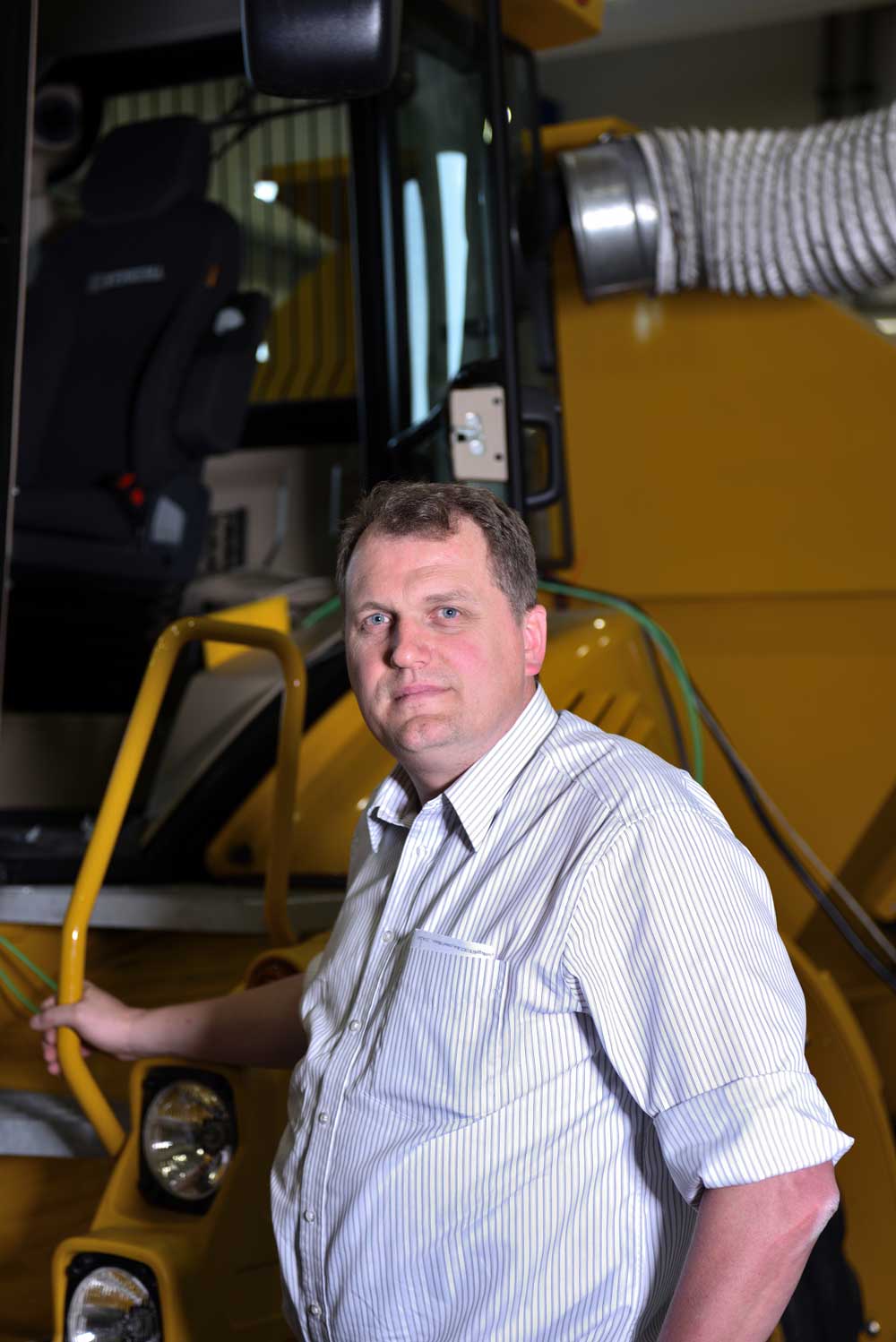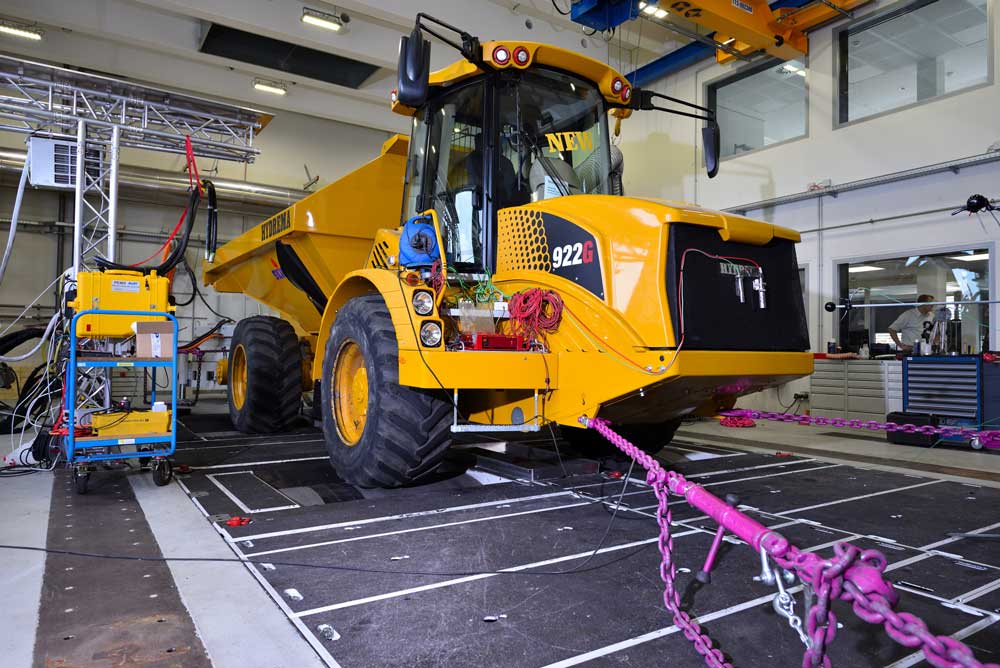An engineer from the North: Lars Blackstad Kristensen
By Dietrich Holler
It’s almost 20 years now since Lars Blackstad Kristensen first worked in Germany. This mechanical engineering graduate is employed by the Danish construction machinery manufacturer Hydrema and cooperates with the DLG Test Center for Machinery & Farm Inputs at Groß-Umstadt: a cooperation that started with testing commercial vehicle cabs and nowadays includes engine and transmission testing on the Center’s rolling dynamometer testbed. In this interview, Lars Kristensen describes his experiences of working with the DLG Test Center automotive engineering experts.
1. For some time, you’ve tested commercial vehicle cabs through the DLG. Now, other tests are being added. Why is this?
We’ve started using the DLG rolling dynamometer testbed because it is ideal for our requirements. The testbed is perfectly constructed in that it can apply drive as well as braking force. In this way we are able to very precisely define and measure mechanical efficiency. At the same time, we can exactly determine the retarder performance, in other words the sustained action brake.
2. Is the test technology the only thing that counts?
It is the basis, after all, when you’re testing machinery. However, factual know-how is just as important. And on that point I am very satisfied with my colleagues at the DLG Test Center Machinery and Farm Inputs. Their competence is impressive and very obvious throughout the Test Center as well as in the specialist seminars in which I regularly participate.
3. So many compliments! Is there anything to criticise?
Not as far as the DLG and its Test Center is concerned. However, now that you mention it: Type approvals for registration of commercial vehicles are very demanding in Germany, particularly for road and rail. My impression is that no other European country has so many regulations in this respect, making the vehicle registration process extremely time-consuming and expensive.
4. That may be, but Germany not only defines itself as the land of poets and philosophers, but of engineers too.
Well, this is perhaps historically justified and, anyway, not really my subject. Good engineers can be found in Germany, but also in other European countries. Certainly, Germany is quite far ahead on a worldwide basis when it comes to mobility. And this performance level could be just as good with less registration regulations.
5. How is electromobility going to affect the commercial vehicle sector?
First of all, the entire automotive sector must agree on future progress in this context. Fundamentally, I believe that electromobility has a great future. The standards will be set by the large manufacturers with medium-sized and smaller companies, such as the one I work for, following-on. The trend towards electromobility for commercial vehicles is already clear, beginning with small machines such as mini backhoes/diggers.




